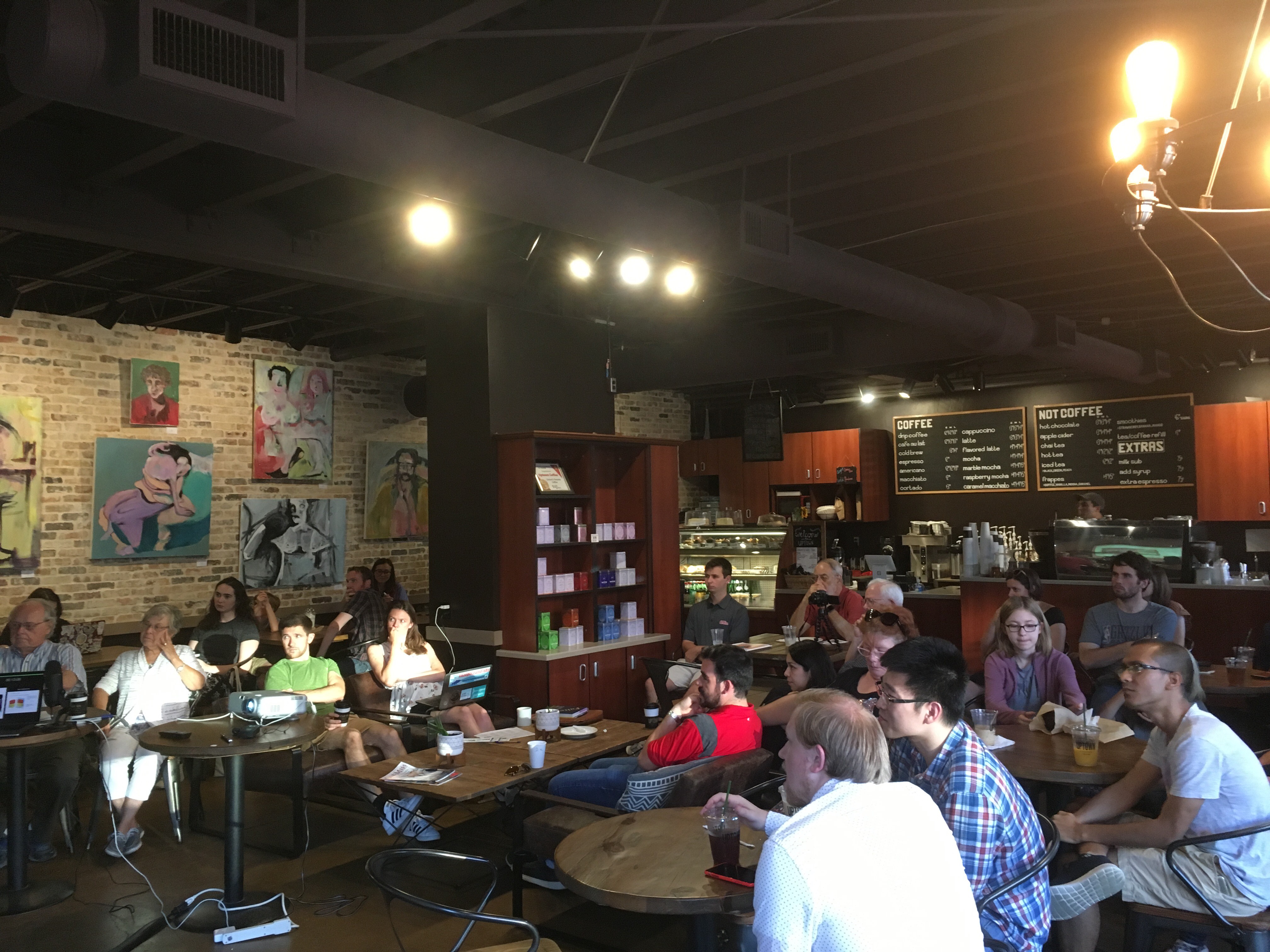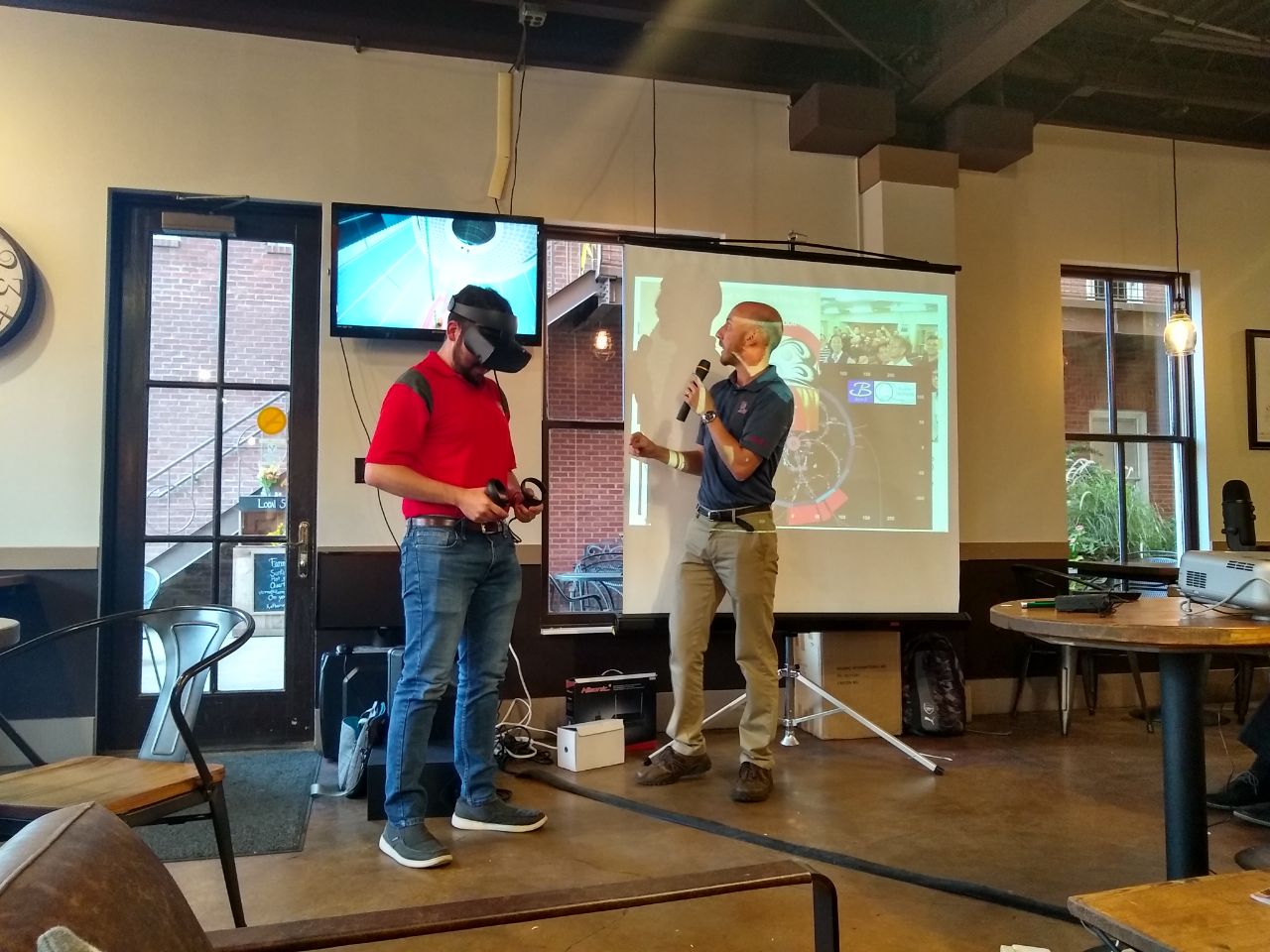September 2023
Nature's Death Stars
Dr. Nicholas MacDonald, Department of Physics and Astronomy, University of Mississippi.
Relativistic jets emanating from supermassive black holes are the most persistent luminous objects in the Universe. They shine across the entire electromagnetic spectrum (from low-energy radio waves to high-energy gamma-rays). Black hole jets can exhibit variability on timescales ranging from months, to days, and even minutes. The physical process by which a spinning supermassive black hole collimates and launches a relativistic jet of high-energy plasma remains unknown. The Event Horizon Telescope can now capture images of the very inner regions of several supermassive black holes through a technique known as Very Long Baseline Interferometry (VLBI). In this talk, I will discuss the international effort involved in obtaining images of black holes and how these images help us to understand the physics of relativistic jets, or Nature's Death Stars.
Tuesday, September 19, 2023, 6:00pm - 7:00pm
Heartbreak Coffee, 265 North Lamar Blvd, Oxford
And via Zoom
April 2023
Psychedelic Medicine: Does the Trip Matter?
Dr. Javier González Maeso, Department of Physiology and Biophysics, Virginia Commonwealth University.
Ceremonial and medicinal use of psychedelics has been part of our cultures since ancient times. Psilocybin is the main active compound in “magic” mushrooms, mescaline is found in the peyote cactus, and LSD became a popular recreational drug in the middle part of the past century. During the past few years, we are starting to discover that psychedelics can cause lasting effects in the brain. They have very recently been shown to produce beneficial effects in people with depression, anxiety and addiction. Our neurons are very plastic: just a single dose of psilocybin can spur neurons to grow new functional contacts called dendritic branches with other neurons. This brain rewiring is most likely one of the main reasons behind the clinical effects of psychedelics – it can happen almost immediately after the psychedelic experience, and the benefits last for months. In this talk, I will present what we know about the molecular mechanisms behind psychedelic effects, and how we study whether we can take the trip out of psychedelics (do we want to?).
Tuesday, April 11, 2023, 6:00pm - 7:00pm
Heartbreak Coffee, 265 North Lamar Blvd, Oxford
And via Zoom
If you missed it, you can check out the recording!
March 2023
Exotic Matters
Dr. Umberto Tamponi, Researcher at INFN — Sezione di Torino, Adjunct Associate Professor at the University of Mississippi.
All the matter that surrounds us is made of simple building blocks: protons, neutrons and electrons. Protons and neutrons are themselves made of even simpler constituents, quarks. But there's much more than meets the eyes. New particles with unexpected properties are being discovered constantly at collider experiments around the world. These new discoveries are called “exotic hadrons” and they are reshaping our understanding of how quarks interact with each other to create new particles. Join us for a tour among tetraquarks, pentaquarks and the most recent discoveries in this exciting field of particle physics!
Tuesday, March 21, 2023, 6:00pm - 7:00pm
Heartbreak Coffee, 265 North Lamar Blvd, Oxford
And via Zoom
February 2023
Artificial Photosynthesis: Recycling CO2 into Renewable Fuels
Dr. Jonah Jurss, Department of Chemistry and Biochemistry,University of Mississippi
Economic growth and an increasing global population continue to drive worldwide energy consumption to new heights. Roughly 85% of this energy is derived from burning fossil fuels that generate greenhouse gases, predominantly carbon dioxide, that contribute to climate change and other environmental concerns. In this context, artificial photosynthesis, that is, the light-driven conversion of carbon dioxide (CO2) and water (H2O) into renewable fuels and commodity chemicals is an attractive strategy to address these issues. By recycling CO2 back into useful chemicals, net carbon emissions could be reduced and an underutilized resource can be tapped into. An overview of this process and the challenges that must be overcome to achieving large-scale artificial photosynthesis will be discussed.
Tuesday, February 21, 2023, 6:00pm - 7:00pm
Heartbreak Coffee, 265 North Lamar Blvd, Oxford
And via Zoom
Photos



